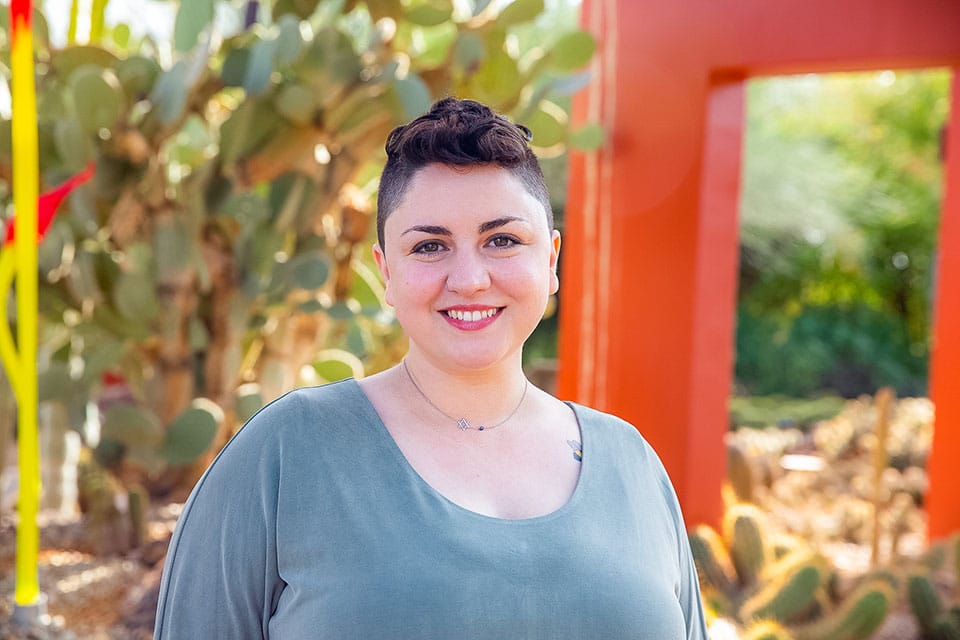The Future of Companies: The Trauma-Informed Workplace

Trauma. It’s a word we are hearing all around us in 2022. It comes up in conversations on what counts as trauma and what doesn’t, along with emerging conversations on mental health, trauma is a topic that is nuanced and here to stay. As businesses continue to grow and desire to maintain a diverse and resilient workforce, the movement to understanding empathy, compassion, and now trauma-informed practices, for the workplace continues to evolve. While I am thrilled to watch this evolution, I am also concerned about how some of these concepts might get lost in the messaging.
Every time a concept becomes popular in the collective media, new voices enter the discussion, which may or may not, actually understand the theory that they are discussing. This leads to misunderstanding and poor execution of these vital practices. This is why I have found it so important to bring research-informed training into corporations on trauma-informed care that assures that they understand the cornerstones of these practices in their unique workplace environments. A general, one-size-fits-all, workshop can often miss these key components and lead to people abandoning the practice entirely.
As the creator of trauma-informed care certifications for attorneys, insurance claims professionals, military leadership, and student affairs, I know how vital customization around a trauma-informed workplace can be. Based on many years of work and research, I have come up with three of the main components for every industry on bringing trauma-informed practices into organizations. These principles listed below are for internal trauma-informed practices, a crucial component that often gets overlooked by a focus on giving trauma-informed care to clients. This means that employees who were not receiving these practices are asked to offer them to others, leading to an inevitable cycle of burnout and emotional fatigue.
- See Everyone You Work with as a Survivor
Whether someone has disclosed trauma to us or not, we must approach everyone as a survivor. We will never know all that the people around us have lived through or are currently managing. Thinking of everyone as a survivor allows us to offer grace and patience that benefits all.A few years ago I had a span of three months where four of my friends disclosed to me that they had each been assaulted within the past 1 to 3 years. These are adults in their 20s, 30s, and 40s with advanced degrees and professional jobs. They are not people that fit what the media often depicts as a survivor of recent violence. Yet, there they were, working as doctors, directors, and teachers and having to navigate a recent crisis.
We truly never know what each other is going through and workplaces need to be responsive to the unique needs of individuals who are processing past and present pain. This does not mean coddling people or excusing negative behavior but recognizing that every behavior has a story and offering tools to support those having a hard time and building strong support networks.
- Internally change to ask yourself “What” not “Why?”
One of the cornerstones of TIC is transitioning from asking, “Why are you like this?” to “What happened and how can I help?” When a co-worker seems distant, easily frustrated, or melancholy, assume that there is a story here and support and compassion are the keys to moving forward.The person who suddenly snaps in anger in a meeting, the individual who seems to cry over a yearly review that really is objectively not that bad, these are all examples of people having emotional reactions which carry a story behind them. Instead of saying the employee is difficult, we need to ask ourselves what experiences could be behind that, from a high ACE score to a recent triggering experience.
This also means being emotionally intelligent with her own needs. When we are having a hard time recognizing the root causes of some of our worries or reactions. Trauma-Informed Care is not about making excuses for bad behavior but instead looking at the explanation behind said reaction and then working to find solutions to support each individual. I mean that we need to ask for time off and different role, or to delegate some of our tasks so that we can be more effective. In a workplace culture, habits like consistently going to therapy or setting boundaries to not being available 24/7 have to become normalized.
- Respect the Spoons
Spoon theory allows us to quantify our physical and emotional reserves so that we can communicate how much energy we can give to each task. This term comes from the disability community and is a framework I have brought into my Trauma-Informed workplace model. Make asking if someone has the spoons (reserves) for a conversation or task part of your work culture. Make self-care vs. productivity central to your values as a company. Practice what you preach and model setting healthy boundaries at work and in your life.
Trauma-Informed Care (TIC) isn’t a tool we take off the shelf only when we know we are interacting with a survivor- it is a way of life that must be ingrained in everything we do- as individuals and organizations. Creating a TIC environment means being trauma-informed not only with clients/students/community members but also with our peers and colleagues. This also impacts our bottom line. Employee turnover, onboarding, and low productivity are some of themost financially depleting aspects of business.
Trauma-informed practices go beyond empathy and are integral to similar practices such as creating a diverse, inclusive, and equitable work environment. This effectively leads to higher retention and a more desirable candidate pool, increase productivity, and work performance. Whether we are looking at the emotional aspect or some of the hard figures, trauma-informed care is value-adding to every industry.
Written by Dr. Laura McGuire.
Have you read?
These are the countries with the Highest Average Salaries, 2022.
International Financial Centers Ranking, 2022.
Top 3 Mindset Habits for CEOs, Founders, and Executives by Mindset Expert and Coach Jeff Meyer.
Richelieu Dennis on the Differences Between Building a Business vs. a Career.
VeeamON 2022: Veeam Backup & Replication v12 and Other New Products to Expect Soon.
Live Video and Marketing Strategies by Ronn Torossian.
Add CEOWORLD magazine to your Google News feed.
Follow CEOWORLD magazine headlines on: Google News, LinkedIn, Twitter, and Facebook.
Copyright 2024 The CEOWORLD magazine. All rights reserved. This material (and any extract from it) must not be copied, redistributed or placed on any website, without CEOWORLD magazine' prior written consent. For media queries, please contact: info@ceoworld.biz








